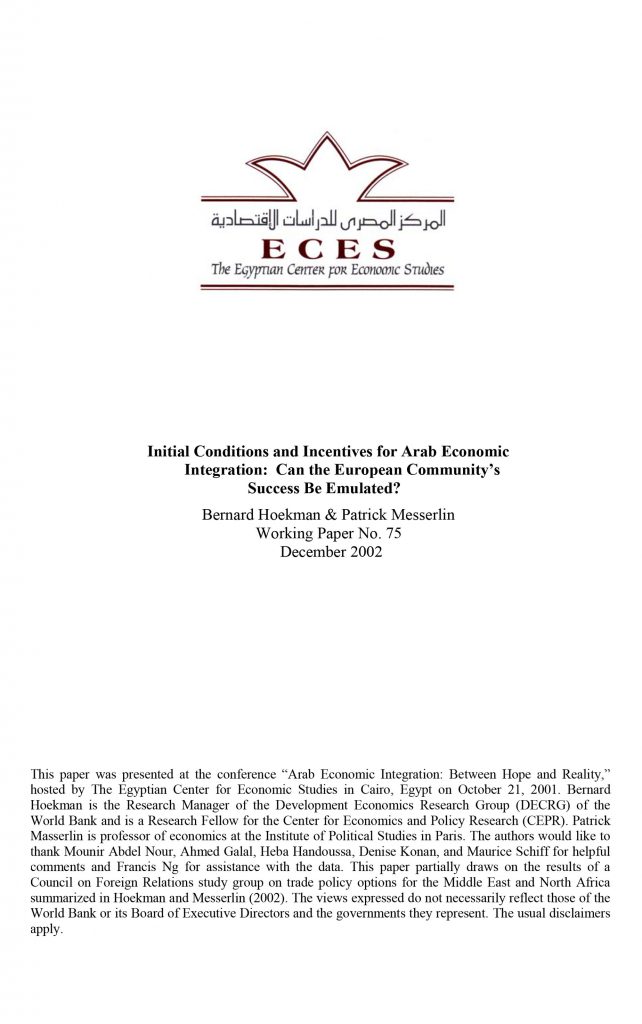Abstract:
This paper compares European Community (EC) ‘trade fundamentals’ that prevailed in the 1960s with those that apply in Arab countries today. These fundamentals differ significantly – Arab countries trade much less with each other than EC members did, and the importance of such trade in GDP varies greatly. This suggests that a viable Arab integration strategy must follow a path that differs from the preferential trade liberalization-led approach implemented by the EC. An alternative is to complement long-standing attempts to liberalize merchandise trade with an effort that revolves around service sector reforms and liberalization. This may prove to be an effective mechanism to support reforms since in principle there is a major constituency in each Arab country that has an interest in improving the performance of services – the natural resource-based and manufacturing sectors. A key condition for such an approach to be feasible is that Arab cooperation helps overcome political economy resistance to national unilateral action, or that it generates direct gains from cooperation in specific policy areas. The EC experience suggests that a services-based integration strategy will be complex and must be carefully designed and sequenced. Given the importance of service-related trade and logistics transaction costs, a first step might focus on bringing such costs down through a concerted joint effort.

Initial Conditions and Incentives for Arab Economic Integration: Can the European Community’s Success Be Emulated?
10-12-2002
Author(s): Bernard Hoekman & Patrick Messerlin
Publication Number: ECES-WP75-E
